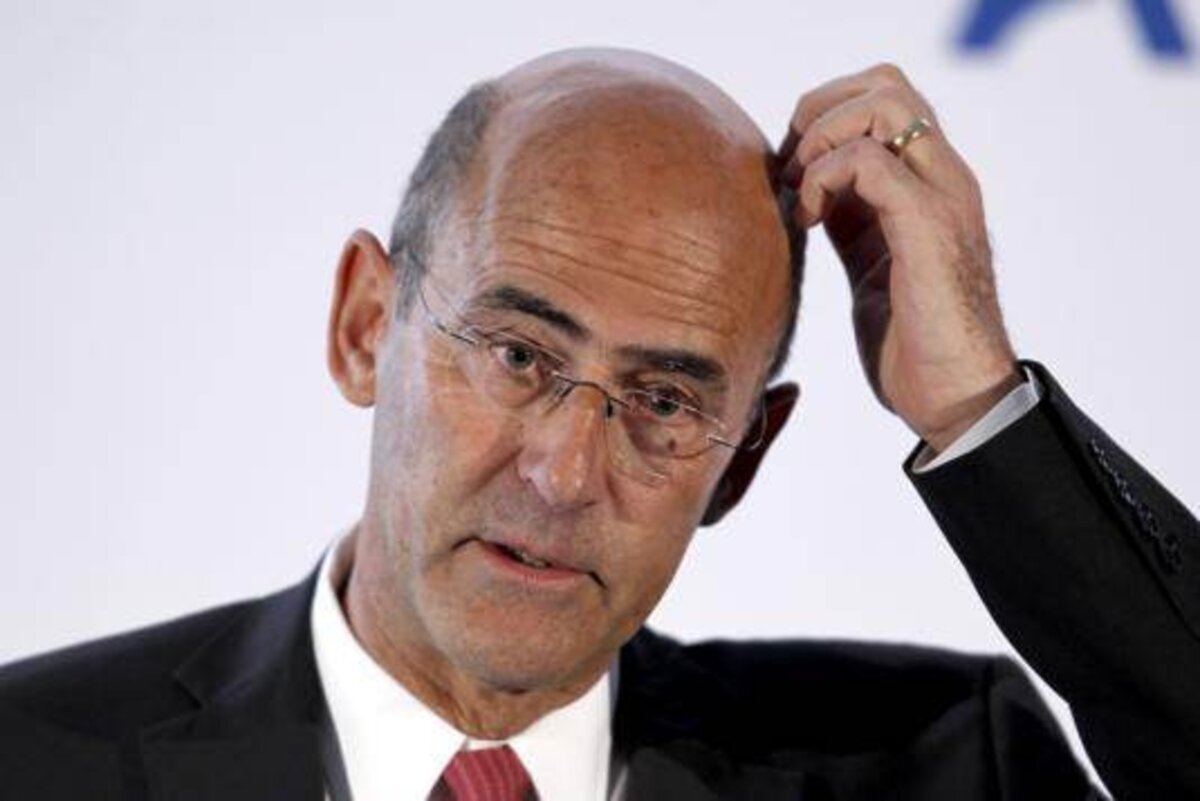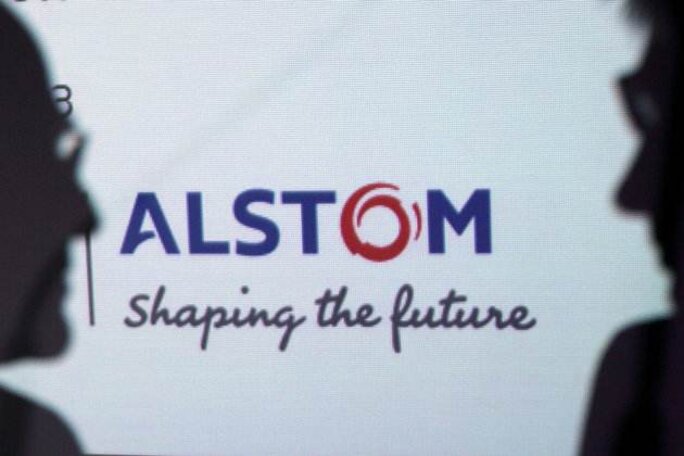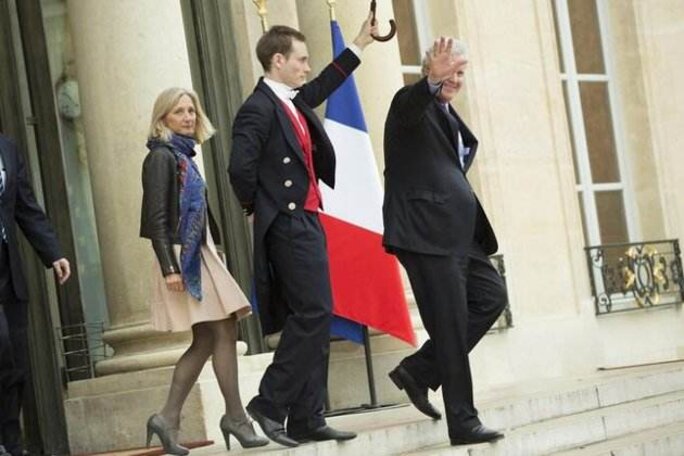April 23rd was a notable day in the 84-year history of French engineering group Alstom. According to the official version of events, it was then that Alstom’s chairman and CEO Patrick Kron met with General Electric (GE) chief executive Jeff Immelt to discuss the US corporation’s interest in purchasing Alstom’s energy division. The meeting between the two had barely ended when the Bloomberg news agency revealed that GE was about to launch a bid for the French group.
“Before that meeting, I didn’t know if an agreement was possible,” Kron later told French daily Le Monde. “Wednesday evening, I believed in it.” Kron hurriedly called a meeting of the Alstom board. The dismantlement of one of France’s industrial giants had begun.

But the official version does not mention that just as Kron and Immelt began their negotiations, Lawrence Hoskins, a former Alstom senior vice president for the Asia Pacific region, was arrested in the US Virgin Islands. That event is far from anodyne.
Hoskins was considered a fugitive in the US after charges were last year brought against him and three other executives from Alstom’s American subsidiary based in Connecticut, who are accused of bribing officials in Indonesia. In July 2013, Hoskins was charged with money-laundering and conspiracy to violate the Foreign Corrupt Practices Act (FCPA), along with William Pomponi, a former vice president of sales for Alstom.
Hoskins was brought before a Connecticut court on May 19th when he was granted bail pending a next hearing on July 9th.
The case centres on a 118-billion-dollar power supply contract negotiated between Alstom and the Indonesian state-owned electricity company Perusahaan Listrik Negara (PLN). The US Justice Department alleges Alstom used middlemen to hand out bribes to company officials, and also a member of the Indonesian parliament, to secure the deal, dubbed ‘the Tarahan project’.
Japanese general trading company Marubeni Corporation was also charged in relation to the deal. In March this year it pleaded guilty to violating the FCPA and was fined 88 million dollars.
Questioned about Hoskins’ arrest, an Alstom spokeswoman told Mediapart: “Alstom has been informed of this arrest which came about within the framework of an investigation led by the Department of Justice concerning allegations of corruption in the past. We do not comment on ongoing investigations or justice proceedings but I can confirm to you that Alstom is cooperating with the Department of Justice.” She offered no further details of the current proceedings.
Two other former executives based at Alstom’s Connecticut headquarters - vice president of global sales Frederic Pierucci and David Rothschild, vice president of regional sales - have pleaded guilty in the case. Pierucci has admitted to one count of violating the FCPA and another of conspiring to violate the FCPA. Rothschild has admitted to conspiring to violate the FCPA.
In March this year, the US Justice Department decided to widen the investigation, led by the FBI, into other contracts negotiated by Alstom in China and India. As a result, the probe now targets a significant part of the commercial activity of Alstom’s energy branch, and the potential consequences are important in the current negotiations over the sale of the French group’s energy arm.
“The legal case against Alstom in the United States appears to be a dissuasive element for Siemens,” said lawyer Stéphane Bonifassi, a specialist in international criminal law and corruption issues with French law firm Lebray & associés. “It appears to be hesitating to make a counter bid. The [Siemens] group has already paid a fine of 800 million dollars for corruption of the same kind after a settlement with the American justice system. It doesn’t necessarily fancy becoming faced [again] with the same problems by taking over Alstom’s energy activities.”
In March 2013, between 60 and 80 members of Alstom’s management staff received a letter from the company’s ethics and compliance department warning them against travelling to the United States. Mediapart has gained access to the detailed letter.
“As you know, a judicial investigation is ongoing in the United States over supposed corruption in certain foreign projects,” the letter states. “Alstom is cooperating with the government investigation. An internal study by the company has shown that you have been involved in American projects […] according to the documents that the company has consulted, the American authorities could believe that you have information about the American projects and [they] could be interested in what you know. It is possible that the American authorities want to question you if you travel to the United States."
After reassuring the addressees that the fact of being wanted for questioning by the US authorities is not a signification of misconduct, the author of the letter adds: “Nevertheless, we ask for your help in learning all the important facts. Check with me or [Alstom General Counsel] Keith [Carr] before accepting to travel to the United States for your work related to Alstom. You must decide if you should want or not to travel to the United States for your personal reasons. If you go the United States and the American authorities wish to question you, you must know that you have the right to talk or not to talk with the investigators. It is your choice and the government cannot force you to accept questioning. But if you accept, you must tell the truth.”
The letter also details the rights of a person questioned in a US investigation.
It was one month after the letter was sent out - and while an internal Alstom document had cleared him of any wrongdoing – that Alstom’s US subsidiary’s vice president of global sales, Frederic Pierucci, was arrested at JFK airport in New York. Pierucci, a French national, has since remained in preventive detention.
Compromising emails in the hands of the FBI
In a statement issued on July 13th 2013 detailing the charges against the Alstom US subsidiary executives, the US Department of Justice noted: “According to the charges, the defendants, together with others, allegedly paid bribes to officials in Indonesia – including a member of the Indonesian Parliament and high-ranking members of Perusahaan Listrik Negara (PLN), the state-owned and state-controlled electricity company in Indonesia – in exchange for assistance in securing a $118 million contract, known as the Tarahan project, for the company and its consortium partner to provide power-related services for the citizens of Indonesia. To conceal the bribes, the defendants retained two consultants purportedly to provide legitimate consulting services on behalf of the power company and its subsidiaries in connection with the Tarahan project. [...] Court documents allege that in the fall of 2003, Hoskins, Pomponi, Pierucci and others determined that the first consultant was not effectively bribing key officials at PLN."
"One email between employees of the power company’s subsidiary in Indonesia described PLN officials’ “concern that if we have won the job, whether their rewards will still be satisfactory or this agent only give them pocket money and disappear”, the statement continues. "In another email, an employee at the power company’s subsidiary in Indonesia sent an email to Hoskins asserting that the consultant “has no grip on the PLN Tender team at all” and “is more or less similar to [a] cashier which I feel we pay too much.” As a result, the co-conspirators allegedly retained a second consultant to more effectively bribe PLN officials.”
It is alleged that the bribery began in 2002 - three years after the OECD convention that makes bribing foreign officials a criminal offence – and lasted up until at least the end of 2009.

Enlargement : Illustration 2

According to the Justice Department, during the period between 2005 and 2009, Alstom’s US subsidiary handed more than 1 million dollars to “consultant A” who was to distribute the money in bribes to Indonesian officials. During the same period, another 800,000 dollars were transferred by the US subsidiary to Alstom’s Swiss subsidiary and this sum was then transferred to “consultant B” to be used in bribes paid to PLN management.
Mediapart understands that the FBI gained full access to Alstom’s email system, as well as internal documents relating to the contract in Indonesia, thanks to help from inside the company. The documents rendered public about the case copiously quote from email correspondence. Among email evidence cited in the November 27th 2012 Connecticut district court document detailing the indictment of Frédéric Pierucci is a correspondence “on or about March 23, 2004” sent by an unidentified company “executive A” to Pierucci and another person identified as “Employee D”. The verbatim text of the email is quoted as follows: "Spoke to [Employee B] at length today. Problems he identified are driven by Elections - driving short term thinking re TOP etc, plus actions by our competitors on a number of fronts ... There seems to be a general perception that some of our competitors are more generous in a no of ways. On Tarahan it seems we must offer circa 12 months for majority of payment. Proposal is 40% D/P [down payment], 35% month 6 and 20%month 12 with 5% on completion. [Consultant B] looking for bettter [sic] but if you agree we should try this. understand [sic] it is difficult but we need help and commitment during negotiation phase.”
It cites another email, this time sent by “Employee D” to “Executive A”, in which he writes: "Approval has just come regarding the terms (40/35/20/5). Yes, I agree they are lousy terms but as you and I talked last week, we both believe we have no choice. I will send a separate message to [Employee B, Employee C, and two employees of Consortium Partner] regarding the T/P to insure we get [Consultant B's]signature and follow-up action with our friends.”
'Likely to be among largest US anti-corruption actions'

Enlargement : Illustration 3

The practices in question were used by the French group well before the appointment in 2003 of Patrick Kron as its chairman and chief executive. But there has been no clear rejection of them after he took charge, and Alstom’s commercial methods have prompted investigations in numerous countries, including Britain, France, Italy, Switzerland, Slovenia, Latvia, Brazil, Mexico and Zambia.
In November 2011, the Swiss Federal prosecutor’s office ordered the company’s subsidiary in Switzerland, Alstom Network Schweiz AG, to pay a total of 39 million Swiss francs (then 31 million euros) in fines and compensation after a long-running investigation into suspected payments made to middlemen to secure public contracts for the building of power stations in 15 countries. The Federal Prosecutor’s office found that Alstom had failed to take necessary and reasonable measures to prevent bribery of foreign officials in Latvia, Tunisia and Malaysia.
In February 2012, the World Bank debarred Alstom Network Schweiz AG and Alstom Hydro France for a three-year period for making in 2002 what it described as “an improper payment of €110,000, to an entity controlled by a former senior government official for consultancy services in relation to the World Bank-financed Zambia Power Rehabilitation Project”.
“We are paying for the laxity of the French justice system,” commented lawyer Stéphane Bonifassi. “France signed the OECD anti-corruption convention but it does nothing to apply it and to penalize abuses. If the French justice system did its work on these issues of corruption, French companies would have to be vigilant. By not doing so, The French justice system puts us in the hands of the American justice system.”
On January 17th 2014, Alstom announced that it was reinforcing all its regulations on ethics. As part of this, the French group decided to no longer use middlemen, as Patrick Kron explained in an internal email addressed to the group’s management. “Alstom is the subject of investigation in a certain number of jurisdictions, following allegations of past irregularities,” he wrote. “We have pledged to cooperate with the authorities concerned and to take the corrective measures which may show to be necessary. The use of commercial consultants (meaning consultants selected for specific projects and paid “success fees” in the event of their concretisation) has very clearly diminished over the past years in step with the expansion of the group’s international implantation and the growth of its internal resources.”
“While I consider the use of such commercial consultants according to the regulations of our compliance programme can positively contribute to our activity in certain circumstances,” Kron continued, “such practice entails a risk of the non-respect compliance regulations because they are neither employees nor under the total control of Alstom. Furthermore, there could be a negative image linked to the use of them which, together with the ongoing investigations into past projects, has an incidence upon our own image. As a consequence I have decided out of precaution that the group will cease to call upon such commercial consultants.”
In March, shortly before the moment when the group officially engaged in discussions with General Electric, the Bloomberg news agency reported that the bribery case against Alstom being built by US Department of Justice was “likely to result in one of the largest U.S. anticorruption enforcement actions, according to two people with knowledge of the probe”. Bloomberg cited former federal prosecutor Michael Volkov who believed that Alstom could face penalties amounting to more than the 800 million dollars Siemens had to pay in a settlement with the US in 2008.
Alstom swiftly reacted to the Bloomberg report with a statement in which it quoted its principal US lawyer Robert Luskin as saying: “The discussions with the DOJ have not evolved to the point of negotiating a potential resolution of any claims. Any effort to estimate the size of any possible fine is sheer speculation, as would be any comparison with other cases that have recently been resolved.”
According to a report by French investigative weekly Le Canard enchaîné, General Electric’s chief executive Jeff Immelt has pledged his corporation would take responsibility for payment of all penalties that might be applied to Alstom at the end of the ongoing case. If that promise was presented to the Alstom board it will most certainly have been regarded as a major reason for preferring the US giant’s bid against that of Siemens.
-------------------------
- The French version of this article can be found here.
English version by Graham Tearse


